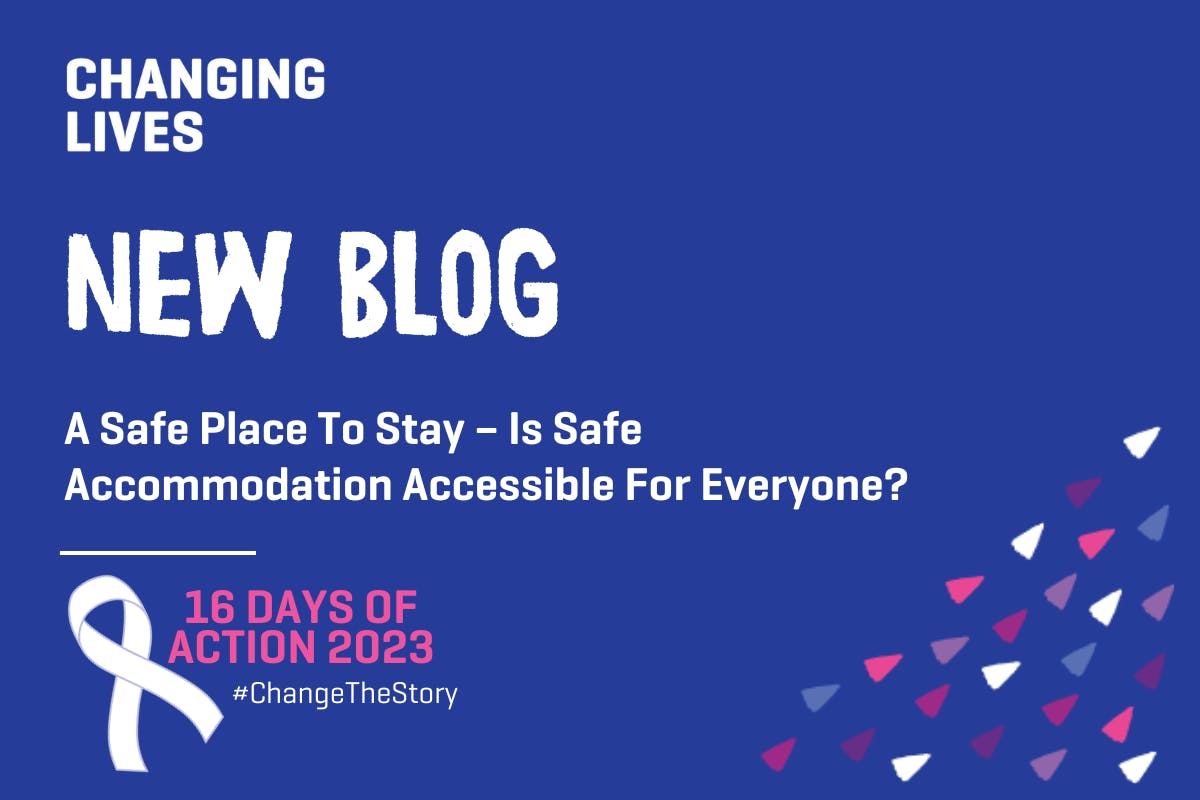Our Middlesbrough Refuge Service Manager Ellie Temple considers the effect of the current economic climate on providing specialist provision, and the real need for adequate funding to #ChangeTheStory for survivors.
Domestic abuse impacts a wide range of people from all different backgrounds and life experiences however safe accommodation is not always accessible for everyone who needs it. Accessing safe accommodation is particularly challenging for those who are seen as being on the ‘outskirts’ of society.
For example, accessing safe accommodation can be challenging for survivors with significant drug support needs or those who are alcohol dependent. The reason for this being that traditional accommodation does not have the resources or specialist training to be able to manage this risk whilst also supporting other vulnerable survivors and their families. Often, the criteria for refuge will state that an individual must be engaging in a drug or alcohol support programme to be considered for a space. We know that using substances can be used as a means of coping whilst in an abusive relationship or victims may have been coerced into using substances by the perpetrator. For some survivors, the expectation to already be engaging in a programme prior to fleeing is unreasonable and unrealistic. For many, they will not feel able to access programmes like this until they are safe and free from abuse. It is important that there is specialist provision out there for survivors with active substance misuse to be able to access safe accommodation.
For other survivors, their struggles with mental illness may provide a barrier to them accessing safe accommodation. With a strain on mental health resources and a lack of adequate care for survivors of domestic abuse, many are being referred to safe accommodation services following a significant mental health episode, for example, a suicide attempt. Refuge and accommodation services are not able to manage the risk, many are not staffed 24/7 and do not feel equipped to manage extensive mental health decline. Whilst these individuals need the support of specialist mental health services first and foremost, once domestic abuse is mentioned they are being referred to refuge due to lack of options and understanding. Specialist provision is needed to support survivors of domestic abuse within a mental health setting.
Due to the current economic climate and austerity, the impact on statutory services has been insurmountable. Lack of funding and opportunities to improve statutory provision has resulted in an increase in the voluntary sector trying to bridge the gap and being left to manage high risk specialist situations which they are often not equipped to deal with. This has increased pressure on voluntary services without increasing funding to provide the skills needed to be able to manage these situations.
Current services, such as refuge, hold an important place and provide excellent support to those they accommodate. It is not that refuge and safe accommodation should change their criteria and accept risks that they cannot manage. However, increased funding is needed to commission specialist provision for survivors with multiple unmet needs with specialist skilled workers who are fully equipped to support those with additional support needs. This will reduce the pressure on traditional refuge and safe accommodation services and reduce the likelihood of survivors with unmet needs being given placements with unreasonable expectations and being set up to fail.
We need to see long term investment to #ChangeTheStory for survivors.




